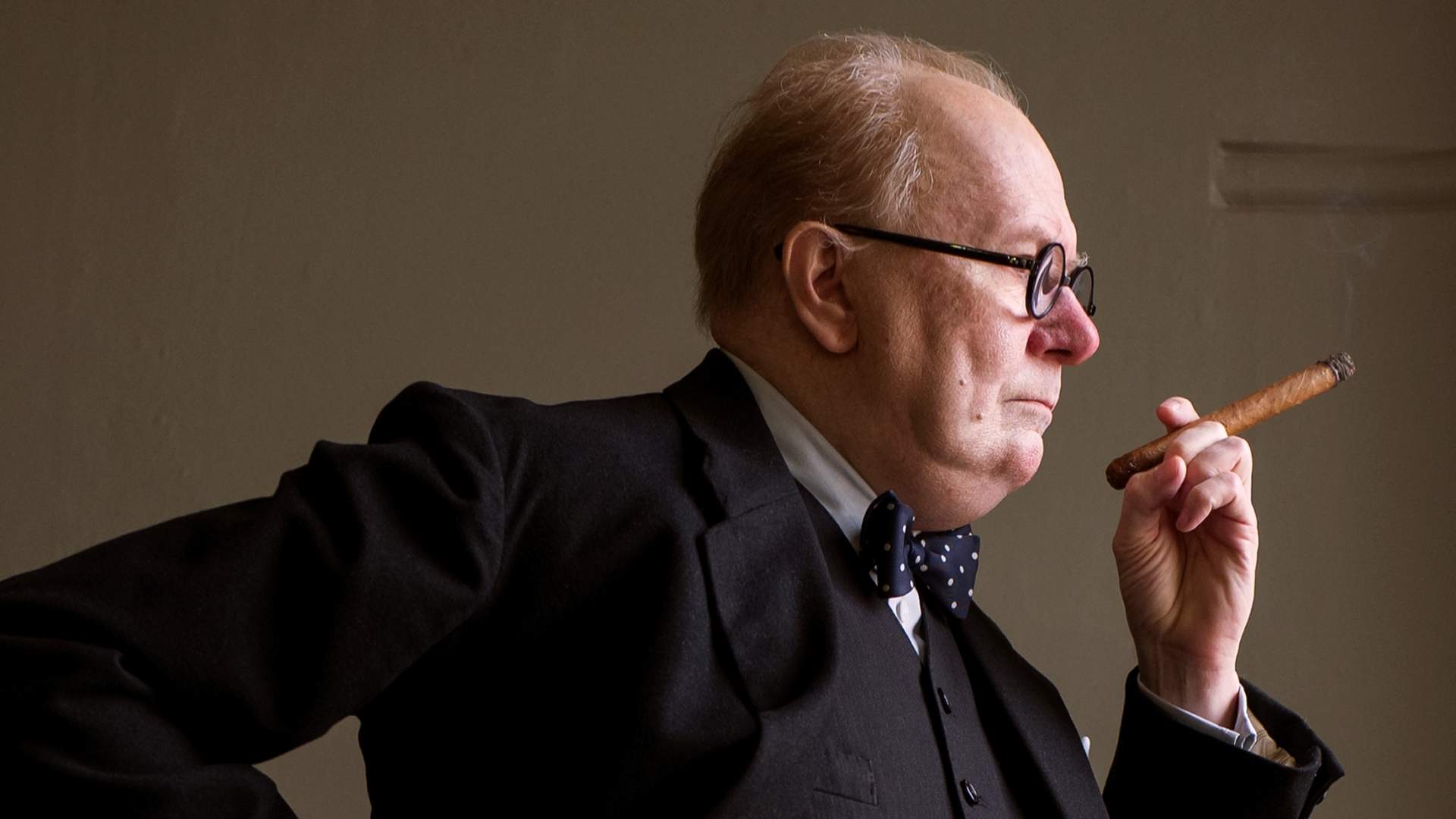Darkest Hour
One of a number of recent films to cover this period of history, The Darkest Hour stands out thanks to the brilliant work of Gary Oldman.
Overview
"We shall fight on the beaches," Winston Churchill told British parliament on June 4, 1940, as World War II raged in Dunkirk. "We shall fight on the landing grounds, we shall fight in the fields and in the streets, we shall fight in the hills; we shall never surrender." His impassioned words came at the end of a heated speech, after a heated month of political debate, in the heated early days of the global conflict. Churchill had been Prime Minister of England for mere weeks, and spent that entire time caught up in arguments about the country's response to Hitler. His colleagues wanted to negotiate, but he refused.
It certainly seems as though filmmakers have taken Churchill's words to heart over the past 12 months. They won't give up on bringing this tense period to the big screen, whether in movies about Churchill, the Battle of Dunkirk or both. With Their Finest, Lone Scherfig came at it with a light, romantic drama about morale-raising movies. With Dunkirk, Christopher Nolan delivered a stunningly immersive account of war at sea, in the air and on the shore. Australian director Jonathan Teplitzky took a slightly different approach, with intimate biopic Churchill focusing on the lead up to the D-Day landings in 1944. It's not hard to see echoes of the latter film in Joe Wright's Darkest Hour, however, which recreates the cigar-smoking, whiskey-swilling politician's other crucial moment in power.
With Gary Oldman in the lead role, Darkest Hour steps through the turbulence that awaited Churchill when he took on the nation's top job in such troubled times. With colleagues Neville Chamberlain (Ronald Pickup) and Lord Halifax (Stephen Dillane) certain that a peace treaty with Nazi Germany is the only way to save Britain from bombing, mass casualties and catastrophe, he has a considerable fight on his hands. The film includes glimpses of the ordeal at Dunkirk, but speeches, rather than bullets, are the main focus. In between verbal scuffles, Churchill seeks support and advice from his wife Clementine (Kristin Scott Thomas), has cautious lunches with King George (Ben Mendelsohn) and initially overwhelms his young secretary (Lily James) with his erratic nature.
While both Churchill and Dunkirk are clearly no strangers to cinemas of late, Darkest Hour has one particular weapon all of its own: recent Golden Globe winner Oldman. The veteran actor gives a captivating performance, even coming hot on the heels of Brian Cox's excellent work in Churchill just months ago. Lured out of retirement by Oldman, special-effects makeup artist Kazuhiro Tsuji creates flawless prosthetics; however it's the man beneath them who always commands attention. Rumbling through terse confrontations, showing Churchill's tender side at home and letting his anxieties seep out in brief, quiet moments, Oldman delivers a vibrant and complicated portrayal not only marked by its impressive imitation, but by the immense range on display.
The film as a whole doesn't prove quite as consistent. Tackling Dunkirk for the second time following 2007's Atonement, Wright serves up several acutely judged and thoroughly engrossing scenes, as well as an array of inventively composed shots. Frustratingly though, he also wades into moments of easy comedy and unconvincing sentimentality — most egregiously in a sequence where Churchill takes public transport without his minders and receives some down-to-earth wisdom from his constituents. In his defence, the filmmaker is partly trapped by the straightforward script, with The Theory of Everything screenwriter Anthony McCarten checking all of the expected boxes. Thankfully, Darkest Hour can always rely on Oldman, whose performance stands out above the formula.





